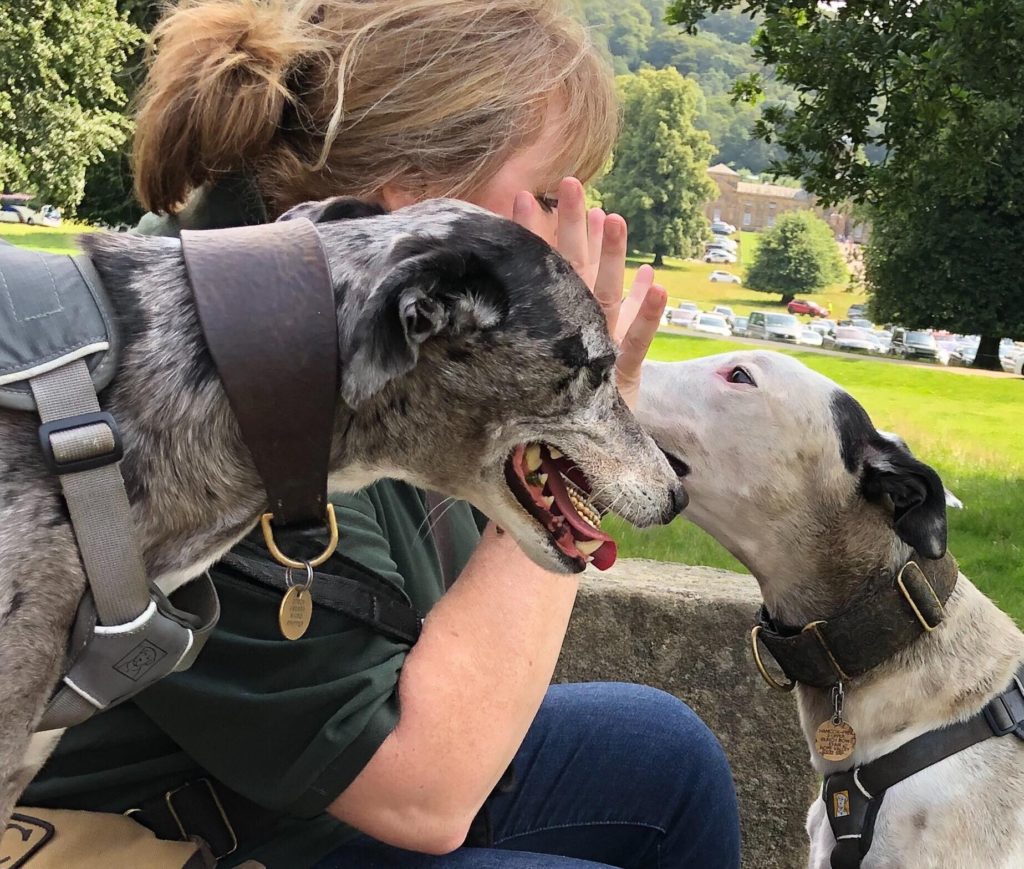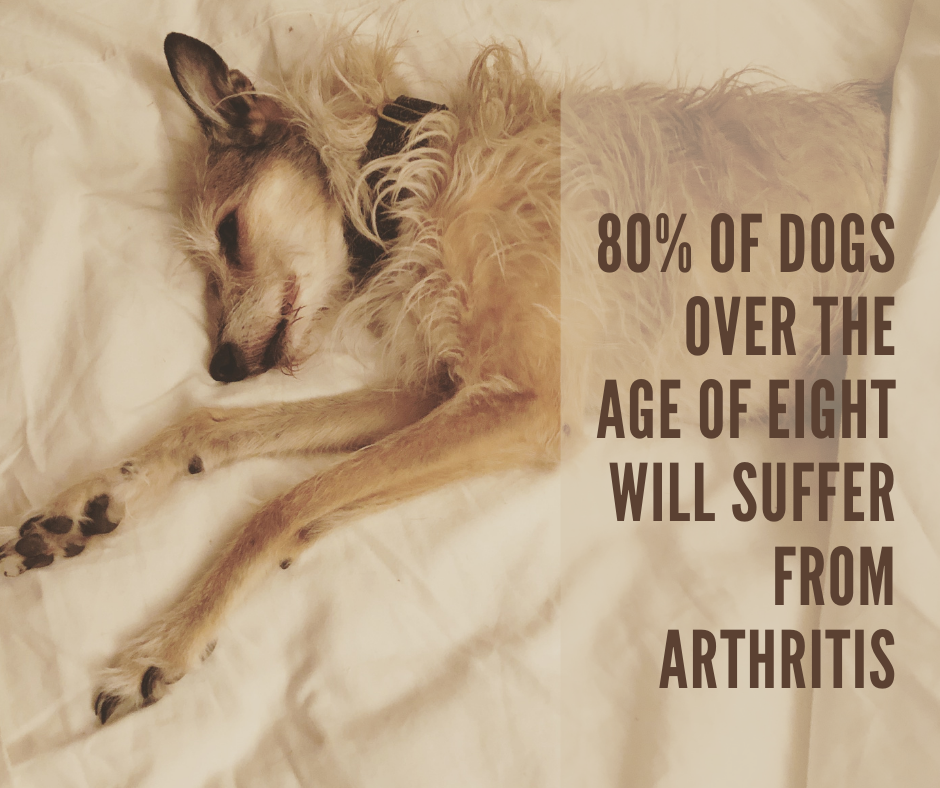What is Canine arthritis?
Canine arthritis is the most common cause of chronic pain, affecting 4 out of 5 of our older dogs.
In fact, 4 out of 5 dogs will be in discomfort at best, and pain at the worst, from 8 years of age. However, what is more worrying, is that you may not even be aware your dog is struggling.
Although this is initially a frightening statistic, with increased knowledge and understanding, there is plenty you can do to help your best friend live their best life.
How can you tell if your dog is in pain?
Dogs are stoic, they don’t perceive pain in the same way as humans. Often, they will keep wanting to go for a walk or to chase that ball. They still want to please us and keep up with the family, despite their increasing discomfort.
No responsible owner wants to believe that their dog is in pain, but it’s about noticing subtle changes. For instance is the dogs able to engage in their usual activities? How are they moving? Have the owners noticed any behavioural changes.?
How can you tell if your dog has osteoarthritis?
In the majority of cases, osteoarthritis is more likely to reveal itself as your dog ages. Due to the hidden nature of these changes; invisibly within their joints, your dog will have become a master at disguising their discomfort. They will try adapting their posture and gait; subtly shifting their weight between their four legs.
8 ways to spot your dog has canine arthritis
- Does your dog appear to walk more stiffly, or less fluidly than they used to?
- Are they lagging behind on walks when they used to keep up or charge ahead?
- Do they groan when lying down or seem slower to get going after sleep, or a rest?
- Maybe your dog seems enthusiastic to walk initially, but this soon fades and they become disinterested?
- Perhaps they seem a little unsteady on their feet, stumble or take bunny-hopping steps?
- Does your dog sleep more, or seem anti-social, less tolerant or grumpier than before?
- Do they hesitate or reposition themselves before attempting to jump up?
- Does your dog hold their head or tail low when walking, or arch their back more than before?
If your dog has any of these Canine arthritis symptoms, you can be sure that once you know what to look for, there are many positive changes you can make to improve your dogs quality of life.
Canine arthritis management
Once you have a veterinary diagnosis, coming up with a management plan to keep your dog as mobile as possible relies on you noticing changes in your dog’s capabilities and behaviours. These could be obvious but are more likely to be very subtle, and all serve to build up a picture of your dog’s joint and muscular health and therefore their comfort level over time.
Once you become aware of simple but effective changes you can implement at home and in your dog’s wider environment, you can start to make a positive difference to your dog’s comfort level.
As we know from human medicine, we can’t cure, arthritis, but there is plenty we CAN do to limit the impact of pain on our dogs’ lives and actively improve their quality of life – and who wouldn’t want that for their dog?
What is Galen Myotherapy?
Galen Myotherapy is a highly specialised manual therapy and exercise management technique. It uses appropriate and targeted specialised massage techniques and exercise management to manage the chronic muscular pain and inflammation that is caused from conditions such as arthritis.
Your local Galen Myotherapist
As a Galen Myotherapist, Sarah works alongside passionate and proactive dog owners. She takes a hands-on approach towards their dogs physical and emotional health.
Sarah uses soft-tissue techniques and functional biomechanics. She works alongside owners to improve her canine client’s physical health and maintain maximum mobility through all of their life’s stages.
There are regular hands-on workshops from her clinic in Darley Dale. These educate the owners on the benefits of Galen Myotherapy. The workshops introduce them to safe, but highly beneficial techniques they can use at home. These techniques demonstrate the hugely positive impact it can have on the lives of dogs with arthritis.
You can find out more about Sarah’s work by checking out her website Moorland Canine Myotherapy


